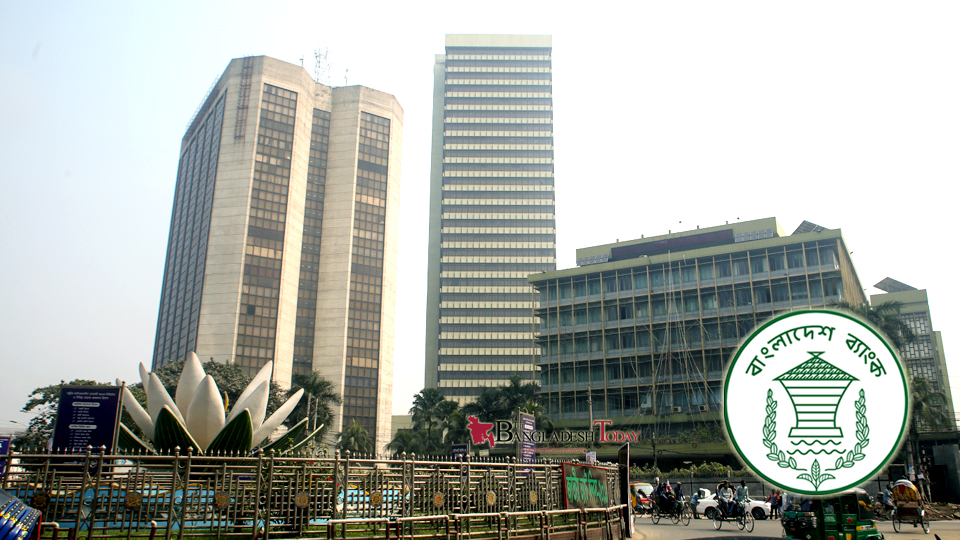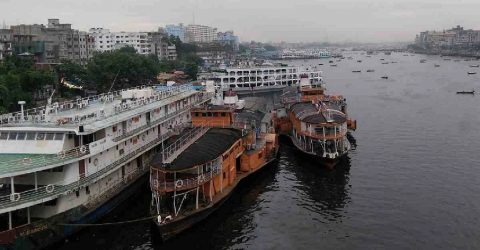
The amount of defaulted loan has increased to over Tk 1 lakh 34 thousand crores, which is a record 9.36 percent of the total loan. This is the highest amount of defaulted loan ever in the country.
Bangladesh Bank stated this information in a report for the September Quarter regarding default loans published on Sunday.The concerned said that special discounts and various benefits were given during the covid-19 pandemic on bank loans. After that, default loans have been increasing continuously.
Economists say the country’s banking sector is at risk of high default. Because, according to international standards, the tolerable default loan rate is considered to be maximum 3 percent.
“At the end of September 2022, the total debt status of the banking sector has risen to Tk 14 lakh 36 thousand 199 crore 82 lakh. Out of this, Tk 1 lakh 34 thousand and 396 crore, which is 9.36 percent of the total loan, has become default.”- stated the latest report of Bangladesh Bank.
Though Bangladesh Bank says the total amount of defaulted loan is Tk 1 lakh 34 thousand and 396 crore, but there are more than half a lakh crores of foreclosed defaulted loans. Besides, many loans have been regularized by writ in the high court. As a result, there is no specific and reliable information on how much money there is in default.
“The actual amount of defaulted loans will exceed 2.5 to 3.5 lakh crores if the bank sector is properly calculated”, say analysts.
The International Monetary Fund (IMF) has expressed concern over rampant defaults in the country’s banking sector. The IMF delegates expressed their concern in several meetings with the central bank recently regarding giving loans to Bangladesh.
In the second quarter (at the end of June) of this year, the total disbursed loans of the banking sector was 13 lakh 98 thousand 592 crores. Out of this, the default amount was Tk 1 lakh 25 thousand and 258 crore, which is 8.96 percent of the total disbursed loans. During the period of July to September, defaulted loans increased by Tk 9 thousand 139 crores in just 3 months.
In December 2021, the total amount of default loans were Tk 1 lakh 3 thousand and 274 crores, which was 7.93 percent of the total loans. Accordingly, in the first 9 months of this year, defaulted loans have increased by Tk 31 thousand 122 crores. However, compared to last September, defaulted loans have increased by Tk 33 thousand 246 crores.
The amount of default loans in last September was Tk 1 lakh 1 thousand and 150 crores, which was 8.12 percent of the total loans.
Meanwhile, at the end of September this year, the defaulted loans of state-owned commercial banks has risen to Tk 60 thousand 501 crores, which is 23.04 percent of the total disbursed loans. The defaulted loans of private banks stood at Tk 66,695 crore, which is 6.20 percent of the total disbursed loans. The defaulted loans of foreign banks are Tk 2,971 crores, which is 4.77 percent of the total disbursed loans, and the defaulted loans of three specialized banks are Tk 4,277 crores. It is 11.80 percent of their disbursed loans.
After new governor Abdul Rauf Talukder took the chair last July, Bangladesh Bank updated its policy on defaulted loans with major concessions to defaulters.
The updated policy provides the opportunity to regularize defaulted loans by depositing 2.5 to 6.5 percent. Earlier, the amount was 10 to 30 percent to regularize default loans. Beside this, defaulters were given the opportunity to repay it within five to eight years. Previously, it was a maximum of two years. Moreover, the policy also says to get a new loan despite there being a default.
Experts believe the defaulters are waiting for special discounts for all those reasons instead of repaying the loan.
Saleh Uddin, Former governor of Bangladesh Bank, thinks that measures, which were taken to reduce default loans, actually has increased it. He suggests the authority to go for direct action to recover defaulted loans.
However, people who have problems should be conducted ‘man to man’ before taking action, he suggests.




